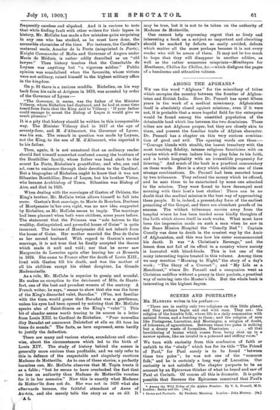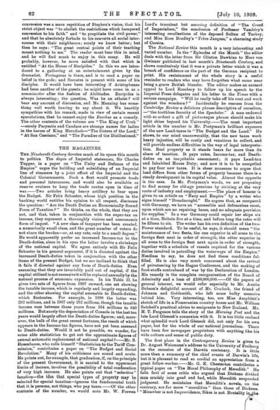" There are in reality only two religions on this
little planet, and they perhaps begin and end with man. They are : the religion of the humble folk, whose life is a daily communion with natural forces, and a bending to them ; and the religion of men like Protagoras, Lucretius, and Montaigne, a religion of doubt, of tolerance, of agnosticism. Between these two poles is nothing but a dreary waste of formalism, Pharisaism all that bewildering of brains which comes from being shut up in a narrow system, like an invalid in a poisoned and stifling room."
We turn with curiosity from this confession of faith or unfaith to the "study" which has for its title "The Friend of Paul," for Paul surely is to be found "between these two poles"; he was not one of the "common folk," and he is certainly a long way off Lucretius. Our curiosity is not satisfied. The chapter purports to be an account by an Epicurean thinker of what be heard and saw of Paul at Corinth. Of course all this is dramatic. It is quite possible that Serenus the Epicurean conceived that Paul's
Among the Witd Tribes of the Afghan Frontier. By T. L. Pennell, M.D. London: Seeley and Co. [16a.] t Scenes and Portraits. By Frederic Manning. London John Murray. [ea.] conversion was a mere repetition of Stephen's vision, that his strict object was "to abolish the restrictions which hampered conversion to his faith" and "to propitiate the civil power," and that be absolutely forbade to his converts all social inter- course with their neighbours; surely we know better; but then he says: "The great central points of their teaching meant nothing to me." The reader must bear this in mind, and he will find much to enjoy in this essay. He will probably, however, be more satisfied with that which is entitled "At the House of Euripides." In this we are intro- duced to a gathering at an entertainment given by the dramatist. Protagoras is there, and is to read a paper on belief in the gods; and Socrates is present with some of his disciples. It would have been interesting if Aristophanen had been another of the guests; he might have come in as a commissafor after the fashion of Alcibiades. Euripides is always interesting ; the question, Was he an atheist ? will bear any amount of discussion, and Mr. Manning has some- thing well worth hearing to say about it. We heartily sympathise with his remark, made in view of certain recent speculations, that be cannot enjoy the Bacchae as a comedy. The other contents of the volume are "The King of Urnk " —surely Paryaatis and Caudace are strange names for ladies in the harem of King Merodach—" The Sisters of the Lord," "At San Casciano," and "The Paradise of the Disillusioned."











































 Previous page
Previous page